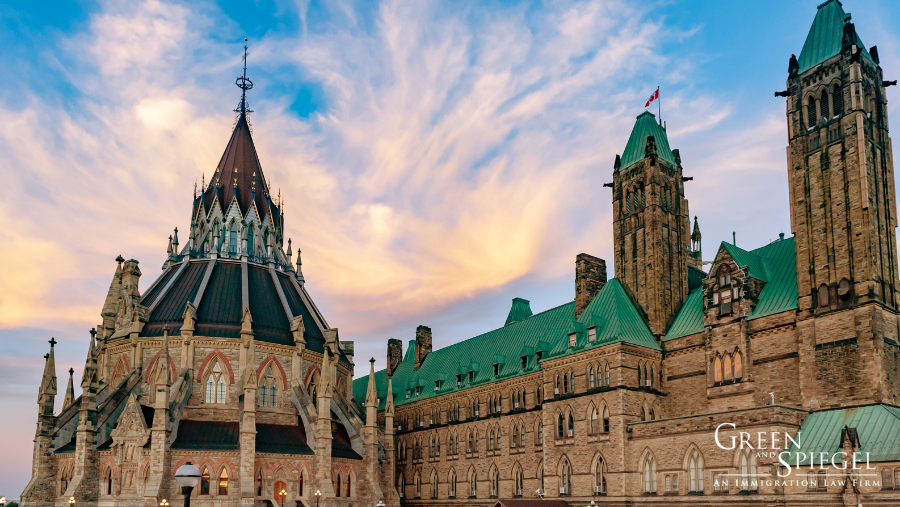As the unprecedented circumstances surrounding the outbreak of COVID-19 continue to evolve, the Government of Canada has released a series of measures to help contain the spread of the virus. On March 26, 2020, two Orders in Council (legal instruments made by the Governor in Council) came into effect and provide the details of what has been dubbed the “travel ban.” Additionally, Immigration, Refugees and Citizenship Canada (IRCC) has released Program Delivery Instructions and Special Instructions, and orders have been made pursuant to the Quarantine Act, that, in conjunction with the Orders in Council, inform who is subject to Canada’s “travel ban”, who is exempted, and the obligations of individuals upon entry to Canada.
Below is a summary of questions and answers relating to Canadian immigration and Canada’s travel ban as of March 31, 2020.
Q: Who can travel to Canada?
A: Canadian citizens and permanent residents can enter Canada. However, if traveling by air, airline personnel have been instructed to deny boarding to any passenger who is exhibiting symptoms of COVID-19.
A travel ban has been announced by the Government of Canada which largely prevents foreign nationals from traveling to Canada, with exceptions. As such, no foreign national may enter Canada unless that individual either:
- Has been in the United States for the past 14 days and their purpose of travel to Canada is not optional or discretionary (i.e. for tourism, recreation, or entertainment); or
- Falls under one of the exemptions listed below.
No foreign national will be admitted to Canada if they are exhibiting signs and symptoms of COVID-19.
Q: Which foreign nationals are exempted from the travel ban and permitted to travel to Canada?
A: An extensive list of exemptions to the travel ban was released on March 26, 2020. The following are notable examples of foreign nationals who are not affected by the travel ban, regardless of the country from which they are seeking entry to Canada:
- An “immediate family member” of a Canadian citizen or of a permanent resident;
- The holder of a valid work permit;
- The holder of a written work permit approval (issued at any time);
- The holder of a valid study permit;
- The holder of a written study permit approval issued before noon EST on March 18, 2020;
- A person whose application for permanent residence was approved before noon EST on March 18, 2020;
- A person who is authorized, in writing, by a consular officer of the Government of Canada, to enter Canada for the purpose of reuniting with immediate family members (most applicable to family members of temporary residents in Canada);
- A person whose presence is in the “national interest” as determined by either the Minister of Foreign Affairs, the Minister of Citizenship and Immigration, or the Minister of Public Safety and Emergency Preparedness;
- There are additional exceptions for those providing medical, emergency, and other essential services.
Despite these exceptions, no foreign national will be permitted entry to Canada if they are exhibiting COVID-19 symptoms or if their purpose of travel is optional or discretionary (for tourism, recreation, or entertainment).
Q: Who is an “immediate family member” of a Canadian citizen or permanent resident?
A: The definition of “immediate family member” found in the exception to the travel ban is broader than the definition of “family member” in the Immigration and Refugee Protection Act. Immediate family members include a Canadian citizen or permanent resident’s:
- Spouse or common-law partner;
- Dependent child or their spouse or common-law partner’s dependent child;
- Dependent child of a dependent child;
- Parent or step-parent or their spouse or common-law partner’s parent or step-parent; and
- Guardian or tutor.
Q: How are business visitors impacted by the travel ban?
A: There is no indication as to whether business travelers who do not hold a work permit approval will be exempted from the travel ban (e.g. those intending to work for under 30 days pursuant to the Global Skills Strategy or general business visitors). Please contact our office for more information.
Q: What is meant by the “national interest” exemption?
A: The “national interest” exemption serves as a “catch-all” exemption for any foreign national whose presence in Canada, in the opinion of the Minister of Foreign Affairs, the Minister of Citizenship and Immigration, or the Minister of Public Safety and Emergency Preparedness, is in Canada’s national interest. IRCC’s Case Management Branch will manage these situations in “accordance with existing processes.” There is no further information provided as to how such applications can be made, what they should include, and how they should be submitted. Until clarification is provided, it may be advisable to simply email the Case Management Branch with a request for a “national interest” exemption, including all relevant documentation.
Q: What are my obligations upon entering Canada?
A: All individuals who enter Canada – including permanent residents and Canadian citizens – must self-isolate for a period of 14 days immediately upon admission to the country.
Q: My temporary resident status is about to expire and I am currently in Canada. What should I do?
A: Temporary residents in Canada must continue to maintain valid immigration status. Temporary residents are encouraged to apply to renew their status six months ahead of the expiry of their current status document, in light of the processing delays and any further unexpected delays that may occur.
Q: I am an international student currently studying in Canada. My classes have now been moved to an online format because of COVID-19. Will this affect my eligibility for a Post-Graduate Work Permit?
A: IRCC acknowledges this unique situation and accepts that many educational institutions are now offering online learning on an extraordinary basis due to the spread of COVID-19. This scenario will not affect a student’s eligibility for a Post-Graduate Work Permit.
This is an ever-changing situation. We highly recommend contacting our office before making any arrangements to travel to Canada for the latest updates and requirements.






